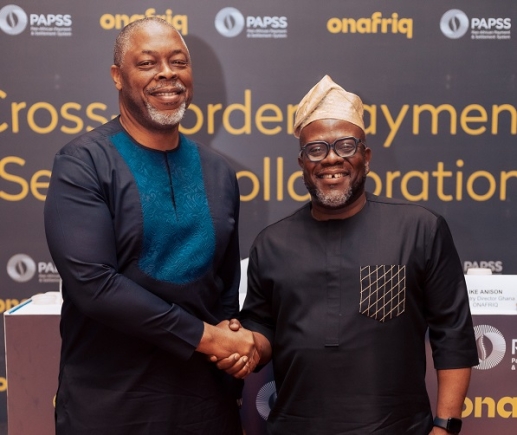The continent’s efforts to simplify financial transactions and bolster economic growth across the country took a significant leap forward when two institutions partnered to launch a single payment platform for cross-border transactions in local currencies.
Through a collaboration between the Pan-African Payment and Settlement Systems (PAPSS) and Onafriq, the move seeks to address the persistent challenges faced by small and medium enterprises (SMEs) and everyday individuals when navigating the complexities of currency and payment systems across Africa.
With the launch of the platform in Accra last Thursday, Ghanaians can now send money to their counterparts in Nigeria using their bank, mobile money or fintech USSD codes and vice versa.
Representatives from both parties demonstrated how to send money through their mobile money accounts to bank accounts in Nigeria using the platform.
Currently, the regulator, Bank of Ghana (BoG), has approved a six-month pilot programme to allow Onafriq and PAPSS to assess transaction flows, user adoption and foreign exchange performance while delivering better rates and more accessible services to customers.
As part of this pilot, Onafriq, which operates in more than 40 countries on the continent, is leveraging PAPSS infrastructure and regulatory coverage to offer its fintech, mobile money and traditional partners in Ghana unparalleled access to cross-border payment capabilities.
The pilot will focus on Nigeria, with further plans of expanding to all 54 African countries after the pilot.
Vision
The Founder and CEO of Onafriq, Dare Okoudjou, explained that the partnership was born out of a shared vision of making cross-border payments as seamless as domestic transactions.
“If you provide a phone number, it should be enough to transact," Okoudjou said, adding that the goal of enabling users to transfer money effortlessly across different countries, just as they do within their own countries, was necessary to boost intra-African trade.
The initiative, he said, aligned with the African Continental Free Trade Area (AfCFTA) framework by making free trade more accessible to ordinary individuals, particularly those in small and medium-sized enterprises (SMEs) and informal sectors, who lack the resources to navigate existing barriers.
Mr Okoudjou said transaction fees would be determined by the partner organisation (like MTN) while Onafriq would provide the underlying infrastructure for these transactions.
On exchange rates, he said they would be determined by supply and demand dynamics, with expectations that increasing currency participation would lead to better rates for end users.
“This partnership represents a significant step towards enhancing financial integration across Africa, making cross-border transactions easier and more efficient for individuals and businesses alike,” he added.
Local currency
PAPSS CEO Mike Ogbalu explained that the new system would allow transactions to originate and settle in local currencies, significantly reducing reliance on third-party currencies.
"The more we use our currencies, the stronger they become," Mr Ogbalu said, adding that this multilateral net settlement approach would streamline payments and lower transaction costs.
